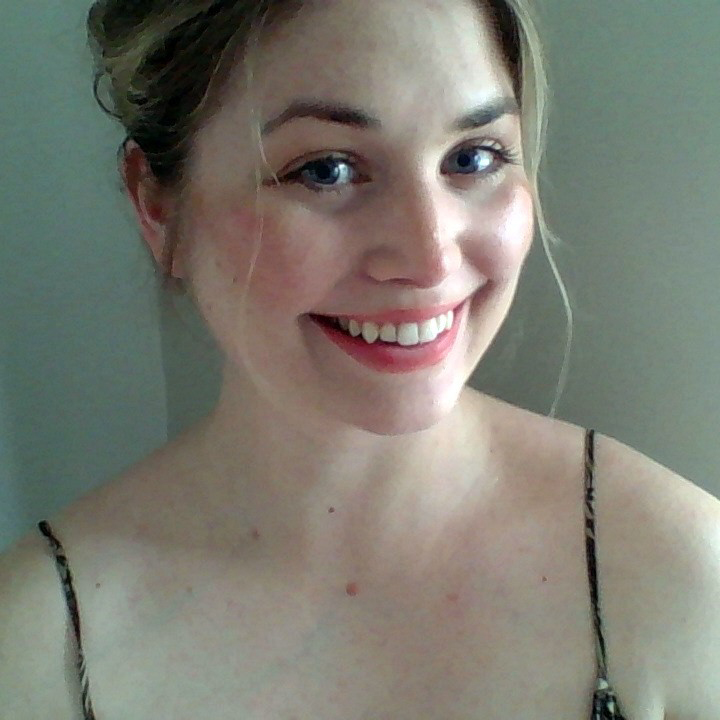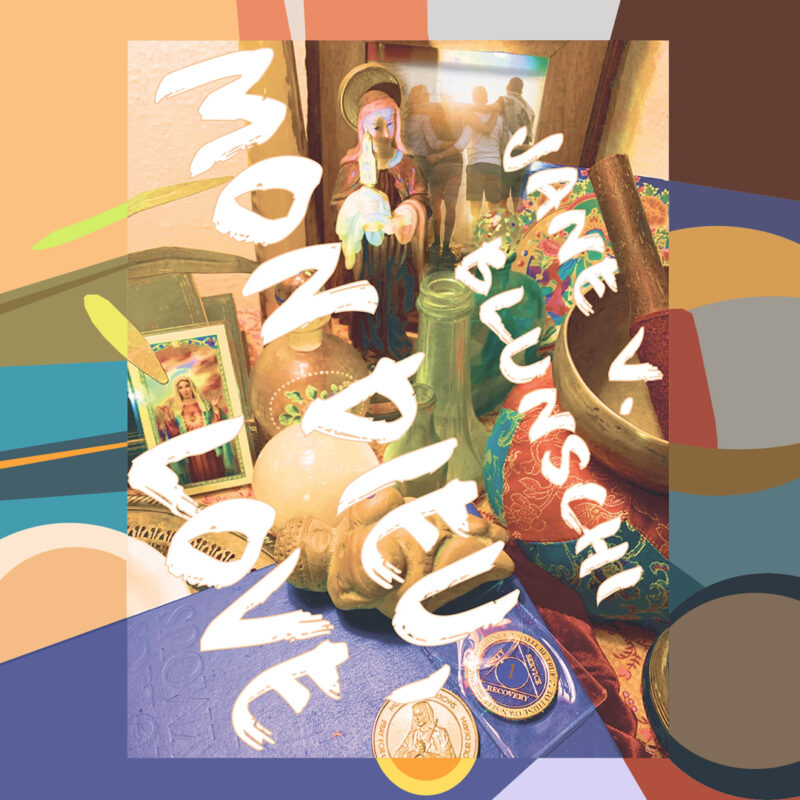USEREVIEW 146: Mon Dieu, Love
Deirdre Danklin prisms the slivers of light in Jane V. Blunschi’s debut novella Mon Dieu, Love (Texas Review Press, 2023).
ISBN: 978-1-68003-343-4 | 122 pp | 19.95 USD — BUY Here
#CAROUSELreviews
#USEREVIEWEDNESDAY
Mon Dieu, Love by Jane V. Blunschi, winner of the 2022 Clay Reynolds Novella Prize (selected by Renee Gladman), is a novella about love. It’s about romantic love in all its twisting permutations — between Elise and a nun named Michael, between Elise and her long-suffering girlfriend Jody, between Michael and Jody, between Elise’s sister and Jody — and about sisterly love. Elise and Carrie are sisters who love each other and are exasperated by each other. Carrie just got divorced because her wife was cheating on her with lots of different women in lots of different cities. Elise is in recovery from drugs and alcohol and it’s only going sort of well. Everyone in this novella crashes into each other at high velocity. There’s immediate attraction and immediate mistakes to be made. It’s also about spiritual love — about what a ‘higher power’ is and what it could possibly have to say to a woman kneeling in cutoff overalls and a pink bikini top on her way to an AA meeting. Unlike the people in this story, the spiritual element is patient. It sneaks up on the characters, and the reader, when they’re distracted by other dramas.
Text messages feature prominently in this story. Here’s an exchange between Elise and Michael.
Elise forgot to tell Michael she’d gone to Carrie’s for the night. It was getting dark outside when Michael texted, trying to find her.
Your sandals are here but
I don’t see *you*
Oh! I’m at Carrie’s. We’re
watching movies tonight.
So so so sorry
What movies?
Ann Reinking double
feature. I need to be
with Ann Reinking rn plz
Respect my privacy lol
So, Annie?
ofc
What’s the other one? All
That jazz?
No Micki & Maude!
That tiresome thing?!
Hey don’t yuck my yums.
The clothes are cool
Ok. See you soon?
Tomorrow
Ok ilylyly
Mais oui.
You’re something else.
MAIS OUI!
The reader, who is modern and familiar with the suspense of typing bubbles popping up on screens, can feel the restraint, the desperation and the lies under these messages. In fact, there is restraint, desperation and lies under all of the interactions that these magnetic women have with each other. The reader might find Elise, Carrie, Jody and Michael exasperating (the lying! the lies-by-omission!), but they’re also interesting, compelling and real.
Baton Rouge Louisiana is the setting for this story, and it pops its head in with French phrases (Mais oui!) and the weather. It’s also there in a kind of languidness that precedes the characters’ decisions. They take it, take it, take it, until they can’t anymore. Along with Louisiana comes a sort of psychedelic catholicism (Elise has visions, and maybe they’re LSD flashbacks, but maybe they’re real?). There’s a woman weeping. There’s blood. There’s a chapel that can never be left totally empty. There’s ritual and structure right alongside some of the craziest hallucinations. Here’s a moment that’s directly preceded by Elise listening to Prince:
… Elise saw the host rupture and crack open. White light spilled out and she could feel it, a pressure in her chest that made her want to take a deep breath. The light blew the whole room open and the people and the candles and the kneelers went away. She was there alone in the light, with the Eucharist yawning open, and the only sound was the sound of Prince’s voice in her headphones. She looked into her lap to refocus her eyes, and when she looked up, the lady was there. It was as if she’d hatched from an egg but the egg was the monstrance and she balanced herself at the edge.
At first, Elise thought she was seeing the Virgin Mary, but this lady did not fit the description of any of the iterations familiar to Elise: Guadalupe, Mr. Carmel, Lourdes. Her robe was dove grey and soaking wet; the fabric clung to her skin and she shivered in the light. Her long hair was wet and tangled under a golden crown floating just above her head. Bloody tears had dried on her face, and as she reached for Elise, a tiny dove flapped from each of her palms. When she opened her mouth to speak, red and yellow rose petals fell from her mouth, landing in a pile that covered her bare feet. When Elise opened her own mouth to speak, the host began to close. The light faded. The lady was drawn back into the monstrance, and she was in the room again with the elderly couple and the woman who wore a chapel veil over her long mousey hair.
All of this religious fervour sort of puts Elise’s romantic travails into perspective, but it sort of doesn’t. She sort of cares more about what ‘the lady’ is trying to say to her, and she sort of cares more about what Michael and her ex are up to. She believes that ‘the lady’ has a message for her, and she calls up an old college buddy to ask if he’s ever had any LSD flashbacks. This is very human, and it feels very true, even if the reader has never seen a vision in their life. At the end of the story, we’re not sure which way any of these characters are going to go, but their ultimate destinations (in love, life and in spirit) feel less important than their ongoing emotional journeys.
On a prose level, the story uses the written detritus of our days in interesting ways. Not only text messages, but also lists of Google search terms and stern lists of ways an ex hurt you so that you don’t succumb to her charms again. This makes the piece feel very of our moment, but there’s also lyricism and strikingly beautiful imagery that live alongside these fast-paced digital moments. The prose does what the story as a whole does — it combines the ineffable with the petty and treats them both as serious subjects. The result is delightful on the page.
I recommend this novella to anyone who has made a bad choice in love, to anyone who has ever lied to their sister and to anyone who has ever kind of thought that God had a message for them — or maybe not. It’s a fast read that will make you laugh, and it’s a deep read that will make you think about all the times you’ve let those close to you down. The characters will frustrate you, but you’ll understand where they’re coming from, and each page will contain at least one tiny bright moment of surprise.


